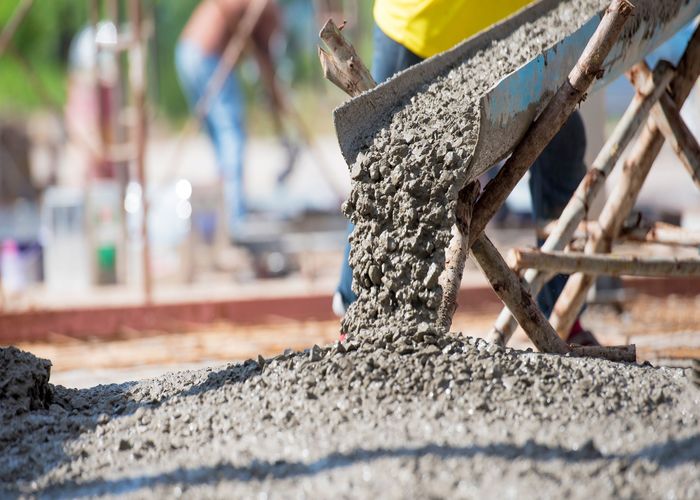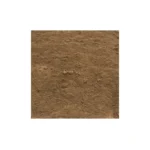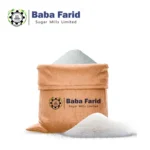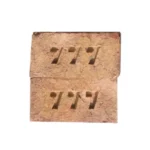Introduction – Cement vs Concrete vs Mortar:
Cement vs Concrete vs Mortar? All the construction professionals including Zarea know the difference between cement, concrete and mortar, but the non-professionals usually get confused between these materials.
“The primary distinction is that concrete is a blend of cement, water, and aggregates, cement is a fine powder that binds and is used in concrete (but not by itself), while mortar consists of cement, water, and sand.”
More often, they end up saying ‘concrete’ when what they actually meant was ‘mortar’ etc. To construction novices, cement, concrete and mortar may all look like the grey building materials.
However, the thing is that you can’t use these terms interchangeably. If you think cement is the substance that is used between bricks to bind them together or that you use mortar to strengthen the foundation of a building.
CEMENT:
- Cement is one of the most important building material used worldwide and is an integral part of urban infrastructure. It is used as a binding medium in both concrete and mortar.
- It is available in excellent powdery form, the main ingredients of cement include limestone, silicon in the form of sand, iron ore and bauxite.
- However, the composition of cement varies and may include chalk, clay, slate and other materials such as immature ingredients.
- Once these materials are assembled, they are processed and heated to about 1500 degrees centigrade in cement-producing plants until they become solid.
- It is then ground into a fine powder, packed in bags, and sold at the market.
- In construction sites, cement is mixed with water. Due to the chemical reaction between the two, the gray paste becomes difficult to bind to individual building units.
- When mixed with water silk and aluminates, cement turns into a hard form that is highly critical to water. It is widely used for water testing.
CONCRETE:
- Concrete is a mixture of about 60 to 80 percent of the soil and rock mixed, 10 to 15 percent cement and a small amount of water, which acts as an active material. However, these measurements vary in the type and use of concrete made.
- The amount and sand of concrete determines its strength, and the cement acts as a binding and hold everything together.
- Now, contrary to what you may believe, concrete is not used as a binding medium for bricks, stones, and other materials.
Waterproof material:
- Instead, it has the appearance of a waterproof material and is used for beams, walls, foundations, slabs and other stone structures.In addition, it can be molded into any shape and then left to dry quickly to form a solid rock. Due to its high strength and high performance, the concrete is also reinforced with steel and wire for additional strength.
- Although most builders prefer to mix the concrete on the site as per their desired size, you can also buy concrete powder in bags that only need water.
- For the larger projects, you can buy a ready-to-use, pre-mixed, solid concrete mix from the company. This ready-to-deliver concrete is delivered by special trucks designed for this purpose.
MORTAR:
- The main ingredients of the mud include cement, sand and water. In comparison to the low water content to concrete cement, the amount of water and cement in the mud is too high to increase its binding capacity.
- In fact, some basic uses of mud involve adhering to different building units and building materials together. These include bricks, concrete blocks and stones. It looks like a thick gray paste and sings quickly.
- It is also important to note that mud is not strong as concrete, which means that it cannot be used as a building material alone.
- However, like concrete, you can buy it in a ready-mixed manner. It on site according to your desired size.
Difference with Following building materials:
Difference Between Cement, Concrete and Mortar? Now that we know the big difference between cement and mortar as well as cement and concrete, concrete and mortar, let’s compare all these building materials for further clarification.
| Cemnt | Concrete | Mortar |
| It is a binding agent | It is a building material | It acts like a glue |
| Cement is made of limestone, sand, iron ore, bauxite and chalk among other materials | Concrete is a compound of sand and gravel aggregate along with cement | Mortar comprises fine sand and cement |
| Solidifies when mixed with water and sets into the shape of the container | Relatively more flexible and can be moulded into different forms before it hardens | It looks like a thick paste that is laid between bricks and stones. It binds the building units together as it hardens |
FAQ’s:
What is the difference between concrete and cement and mortar?
Concrete is composed of cement, water, sand, and gravel blended in varying amounts, whereas mortar is made up of cement, water, and lime aggregate. Nonetheless, mortar lacks the durability of concrete and serves more as an enhancement to a project instead of being the primary building material.
Should I use cement or concrete?
Cement is a component utilized to create concrete. Cement can stand alone, but concrete, combined with its other components, offers greater durability. The other posters have the distinction accurate, but you can generally refer to concrete as cement and be comprehended. The phrases can be used interchangeably.
What is mortar used for?
Mortar is a pliable mixture employed to connect stones, bricks, or tiles. The main components in this mixture consist of binding substances like lime, cement, etc., combined with water and fine sand aggregate.
Why is mortar better than cement?
Similar to concrete, mortar is built for durability, yet attains its objective through refinement. Its strength is relatively low when compared to concrete, and it is never utilized in thick applications. It is far creamier and easier to manipulate than concrete.
Can I use concrete instead of cement?
No, cement and concrete are not identical substances. Concrete is a construction material composed of three components: water, aggregates, and cement. Cement is a binding substance that constitutes one of the components of concrete.


































